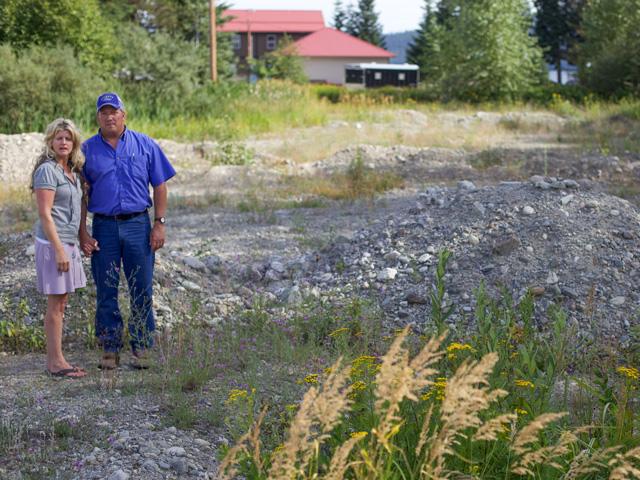SCOTUS to Hear Sackett Arguments Oct. 3
Environmentalists, Lawmakers Stand Behind EPA on Sackett Case Before Supreme Court
LINCOLN, Neb. (DTN) -- The Supreme Court will hear oral arguments on Oct. 3 in a Clean Water Act case that could have a broad effect on which waters are considered jurisdictional.
Additionally, this week, nine amicus briefs were filed in Sackett v EPA in support of the agency's position.
At the end of April, numerous agriculture groups, members of Congress, businesses, legal foundations and others filed amicus briefs in support of Idaho property owners Michael and Chantell Sackett.
On Oct. 3, the Supreme Court will consider a very narrow question regarding the reach of the Clean Water Act: Whether the U.S. Court of Appeals for the Ninth Circuit in San Francisco used the proper legal test for determining whether wetlands are waters of the U.S.
In particular, the Sacketts have asked the Supreme Court to consider whether the so-called "significant nexus" test is the right method used when it comes to wetlands.
Waterkeeper Alliance Inc., San Francisco Baykeeper and Bayou City Waterkeeper argue in a brief this week the Clean Water Act's definition of wetlands should stay in place.
"There is no need in this case to reach out beyond the question presented, and there are good reasons to keep the holding limited to the category of wetlands at issue here: those adjacent to both a traditional navigable water and a jurisdictional non-navigable tributary to a traditional navigable water," the groups argue.
"Our nation's waters form diverse aquatic ecosystems that can't be reduced to a one-size-fits-all test."
In particular, the groups argue waters are so complex as to require federal control.
P[L1] D[0x0] M[300x250] OOP[F] ADUNIT[] T[]
"The 'broad objective' of the CWA requires 'protection of aquatic ecosystems,'" the groups said, "which demands broad federal authority to control pollution, for 'water moves in hydrologic cycles and it is essential that discharge of pollutants be controlled at the source.'"
One-hundred-and-sixty-seven current and former members of Congress filed a brief in support of the EPA, as well. They outline the steps taken by Congress to secure clean water.
"Huge progress has been made in protecting this nation's waters," the brief said. "But polluting and filling still threaten to destroy wetlands and other waters that provide valuable services to fisheries, wildlife, recreation, health and drinking water. The resolution of this matter could have a profound impact on whether that progress is sustained."
The current and former lawmakers said the agency should continue to use the so-called "significant nexus" test in determining jurisdiction.
"Amici also write to counter the atextual and policy-driven arguments of petitioners and their allies," the brief argues.
"The court should decline their pleas to rewrite the act and, through a jurisdiction-shrinking test, supplant waters-specific assessments that, under the act, must be tested through the crucible of regulatory proceedings."
A group of 114 environmental and community non-profit organizations filed a brief in support of EPA on the case. They are critical of a two-step test put forward by the Sacketts instead of a significant-nexus test.
"Petitioners now put forward a 'two-step' test for determining the act's scope that is, more accurately, a giant leap backward," the groups said in the brief.
"Their proposed reading would protect only waters deemed navigable and wetlands that physically abut them, 'but no more.' This reading ignores that the act repeatedly recognizes wetlands themselves as 'waters.' And it would allow the destruction of every non-abutting wetland and non-navigable tributary of a traditional navigable water, with obvious and significant negative impacts on the downstream water's chemical, physical, and biological integrity. That is not the comprehensive water-quality statute Congress enacted."
The state of Colorado filed a brief in support of EPA, calling for the continued use of significant nexus.
"In short, Colorado's position as a headwaters state with strong interests in protecting water quality and aquatic resources and supporting the needs of agriculture and industry gives it a unique perspective on how to define the limits of federal Clean Water Act jurisdiction," the brief said.
"Exercise of federal jurisdiction over tributaries and adjacent wetlands, as implemented through the significant-nexus test articulated by Justice Kennedy in Rapanos, accommodates these carefully balanced interests and best reflects the text, purpose, and structure of the Clean Water Act. This test is particularly important in preserving a federal baseline in arid states like Colorado, where an obvious continuous surface connection to navigable waters may not be present for a large portion of our waters."
Read more on DTN:
"Sacketts See Support on Wetlands Case," https://www.dtnpf.com/…
"Landowners Appeal to SCOTUS," https://www.dtnpf.com/…
"EPA Defends Significant Nexus at SCOTUS," https://www.dtnpf.com/…
Todd Neeley can be reached at todd.neeley@dtn.com
Follow him on Twitter @DTNeeley
(c) Copyright 2022 DTN, LLC. All rights reserved.




